
The federal government ‘sees a long-term future for the oilsands.’ Here’s what you need to know
An internal document obtained by The Narwhal shows how the natural resources minister was briefed...
Over the past two years, the Ontario government moved to muzzle the council that advises it about the Greenbelt as it shuffled its work behind closed doors, documents show.
Ever since, as the government moved toward its contentious decision to remove land from the protected area, the council saw constant turnover in its members, whose numbers have now shrunk to just a handful.
The Greenbelt Council exists to give advice to the provincial government about issues related to the Greenbelt, a protected area of farmland, forests and waterways ringing around the Greater Toronto Area. For years, the council sent its recommendations through letters to the minister of municipal affairs, currently Steve Clark, that were made public several times per year. But the council abruptly went quiet in late 2020 when more than half of its members resigned in protest of Premier Doug Ford’s environmental policies.
Since then, the council has only piped up once, when its last chair supported the government’s 2022 removal of 7,400 acres from the protected area to build homes — a departure from the council’s longtime support for maintaining the Greenbelt in its entirety.
Documents obtained by The Narwhal explain the silence: after the mass resignations, the government changed the rules of the Greenbelt Council to make its advice confidential, and to restrict its members’ ability to talk to journalists.
The new rules were first laid out in a “media relations protocol” document for the council in March 2021, three months after the resignations, which was obtained by The Narwhal through a freedom of information request.
Though the chair of the Greenbelt Council used to be able to freely share the group’s advice publicly and answer questions from reporters, the new protocol says the chair can only answer questions about the council’s mandate and processes. The other members of the panel can answer questions about their roles and professional backgrounds but are bound to “keep council deliberations confidential.”
“Refer other questions to the [Ministry of Municipal Affairs and Housing] communications branch],” the protocol reads.
“Council’s advice to the minister is considered confidential unless the minister approves its release.”
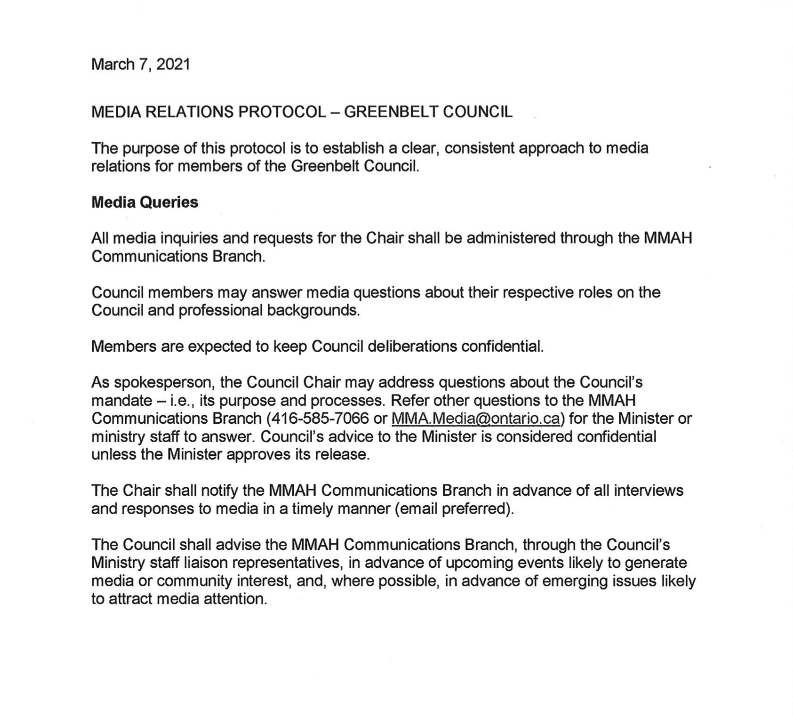
The new confidentiality requirements were also codified a year later, in March 2022 terms of reference for the Greenbelt Council obtained by The Narwhal through the same freedom of information request. The Narwhal compared the 2022 terms of reference, which are still in effect now, with the previous terms of reference from 2018, which were provided by a source.
Other revisions in the 2022 version alter the Greenbelt Council’s function in subtler ways.
Previous councils gave the minister advice when asked, but also had the freedom to give advice unprompted, on any issues the members decided were important. Now, the topics must be “determined through consultation between the minister and chair.” The 2022 terms of reference removed a paragraph from the old version specifying the point of the Greenbelt is to “manage growth, build complete communities, curb sprawl and protect the natural environment.”
The new terms of reference also tweaked the description of who members of the council should be.
The 2018 version said members “shall be drawn from various sectors or individuals that support the objectives of the Greenbelt.” It also recommended members could come from conservation authorities — watershed management agencies, whose powers the current Ontario government has repeatedly cut — that work in support of the Greenbelt.
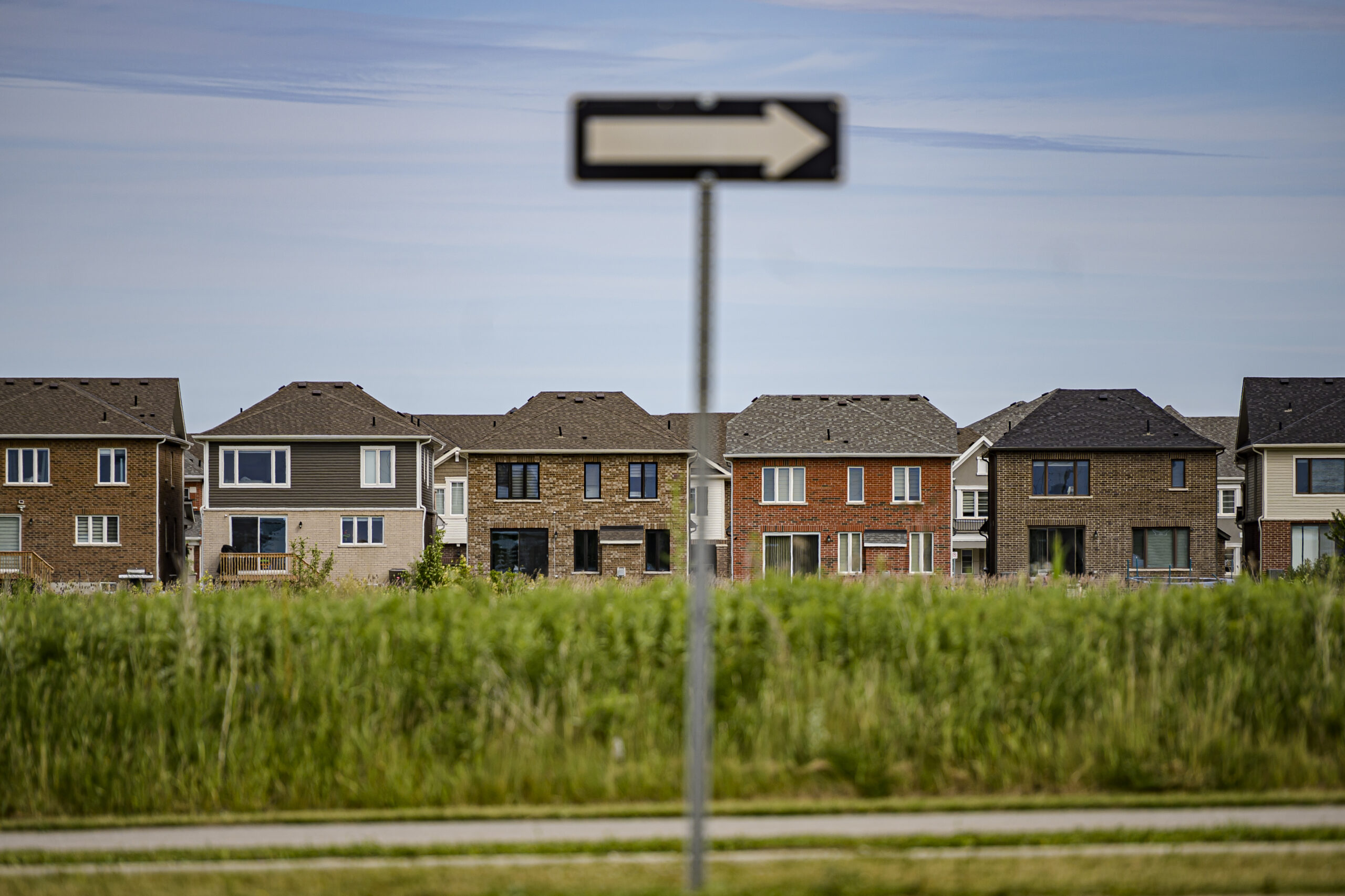

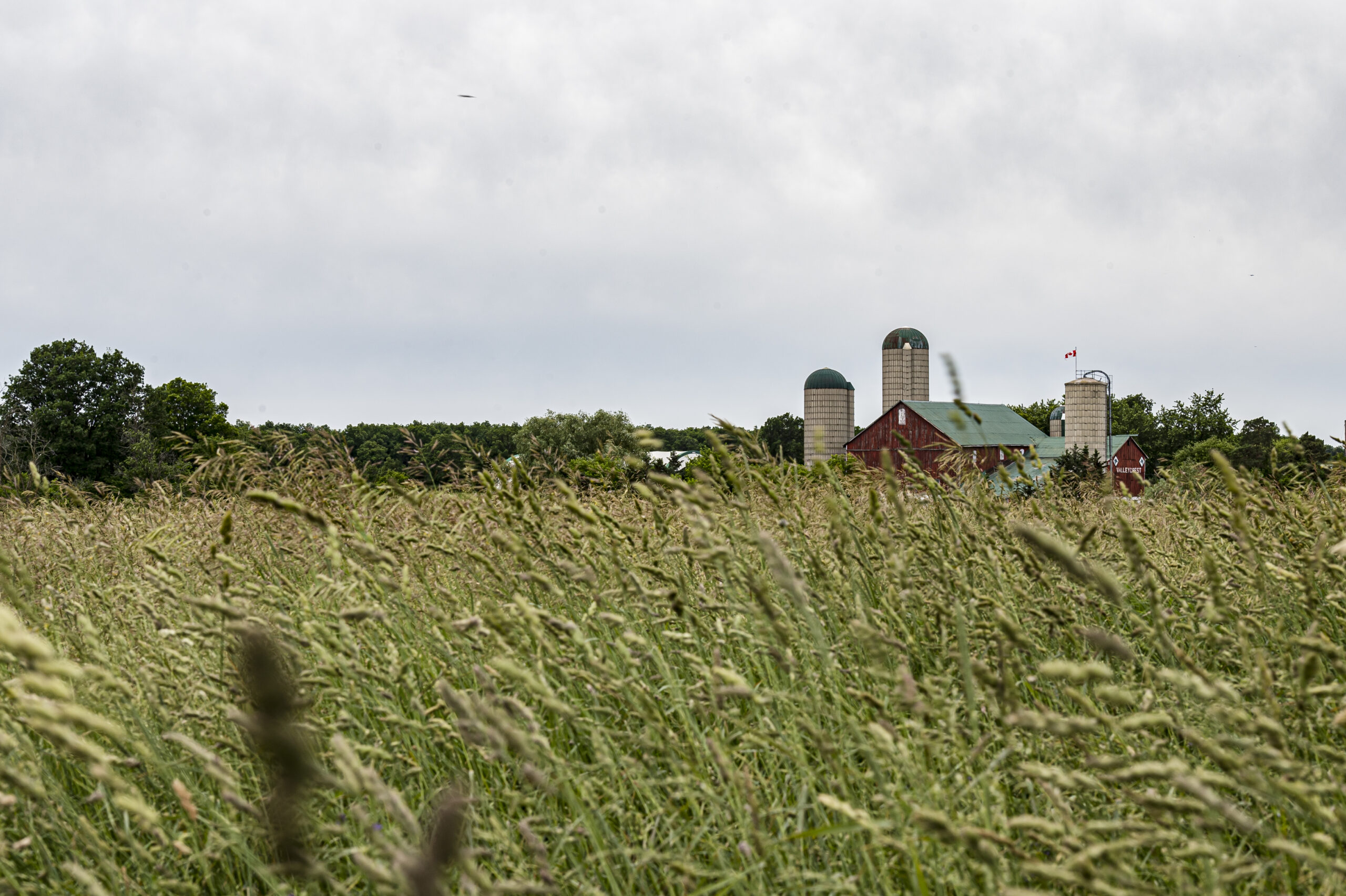
The new version removed the reference to conservation authorities. Now, members should come from a “diverse range of various sectors (e.g. municipal, academia, agricultural, development, environmental, housing, business/economic development, infrastructure, transportation) or individuals that support the objectives of the Greenbelt to provide a balanced representation.”
Clark’s office and the Ministry of Municipal Affairs and Housing didn’t acknowledge repeated emails from The Narwhal with a list of detailed questions about the intent of the media protocol and edits to the terms of reference. The government also didn’t answer when asked whether the changes were intended to help lay the groundwork for its removals of land from the Greenbelt in late 2022.
Taken together, the government’s changes to the Greenbelt Council over the past two years keep the public in the dark, Tim Gray, the executive director of the advocacy organization Environmental Defence, said in an interview.
“It’s what you’d do if you wanted to make sure that [the Greenbelt Council] was a lot less effective and didn’t give information to the public and didn’t advocate for the Greenbelt,” Gray said.
“It would definitely ensure that the minister wouldn’t have to be nervous about a Greenbelt Council saying anything publicly about the attack on the Greenbelt, because it effectively cut off its ability to release public reports or speak to the media directly.”
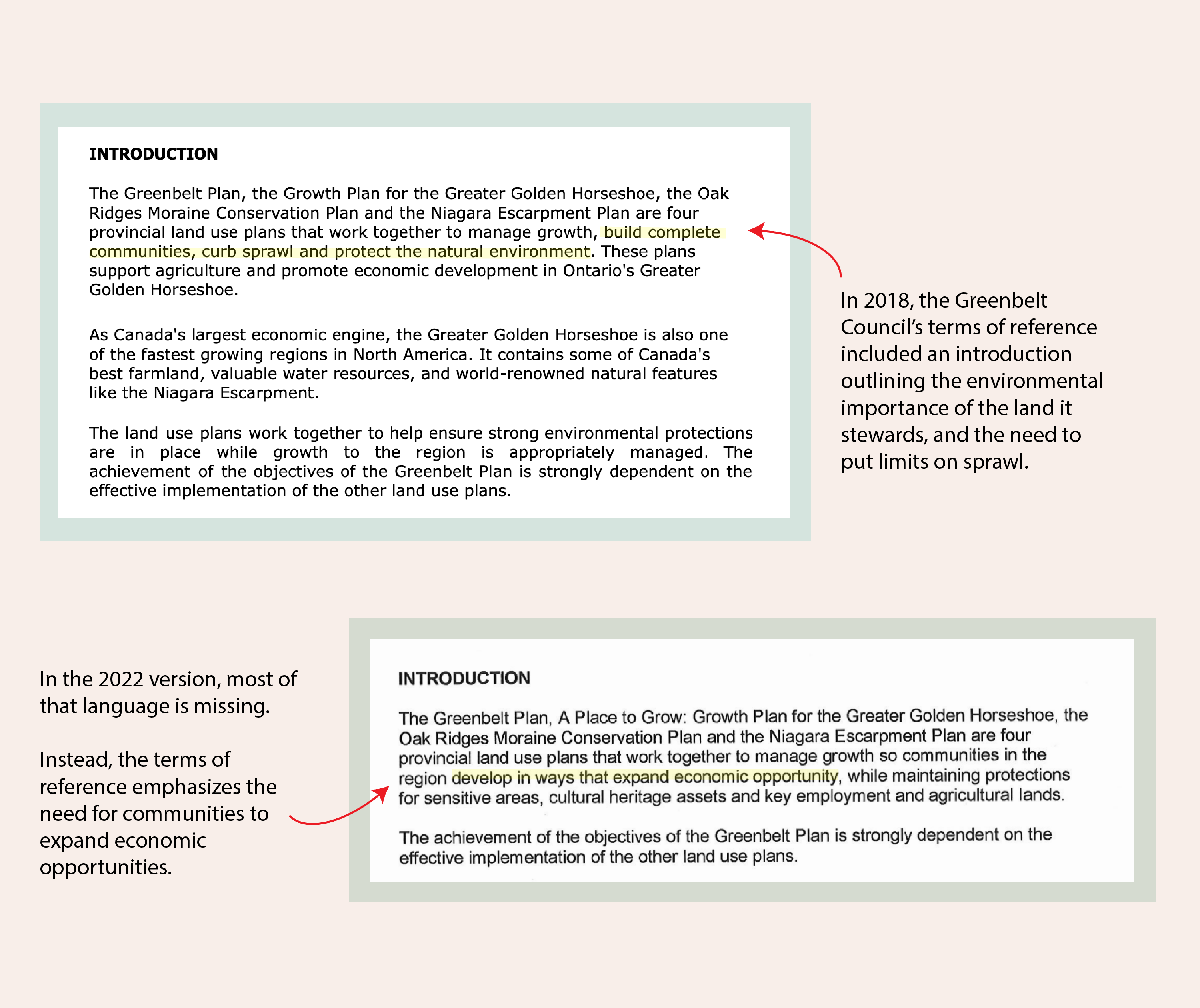
It’s not uncommon for government advisory panels to be bound by confidentiality. But it is unusual for the Greenbelt Council. Prior to the 2020 resignations, the council spoke up about a variety of land use issues in southern Ontario. In the months leading up to the resignations, the council had pushed the government to drop a plan to allow quarries to be built in endangered species habitat, and asked the province to reconsider plans to build Highway 413 through the Greenbelt.
The first rumbling of trouble, however, came when one member of the council resigned in November 2020 over the province’s decision to fast-track development on the Lower Duffins Creek wetland east of Toronto. “I cannot in all conscience continue to sit on the Greenbelt Council which has provided you with its best advice … which seems to me to have not been given due consideration,” Linda Pim, an environmental biologist and land use planner, said in her resignation letter.
The tension erupted a month later when the council was rocked by a mass exodus in protest of a 2020 move to disempower conservation authorities. First, it was the chair at the time, David Crombie, a former Progressive Conservative MP and mayor of Toronto, who said the changes were “disastrous” and “high-level bombing” that “needs to be resisted.” Six more members followed his lead the next day and quit.
The backlash continued when the Ontario government appointed Crombie’s replacement, Norm Sterling, a former Progressive Conservative environment minister who voted against the creation of the Greenbelt in 2005.
Although the council hasn’t said much publicly since, turnover has continued to keep its numbers in flux.
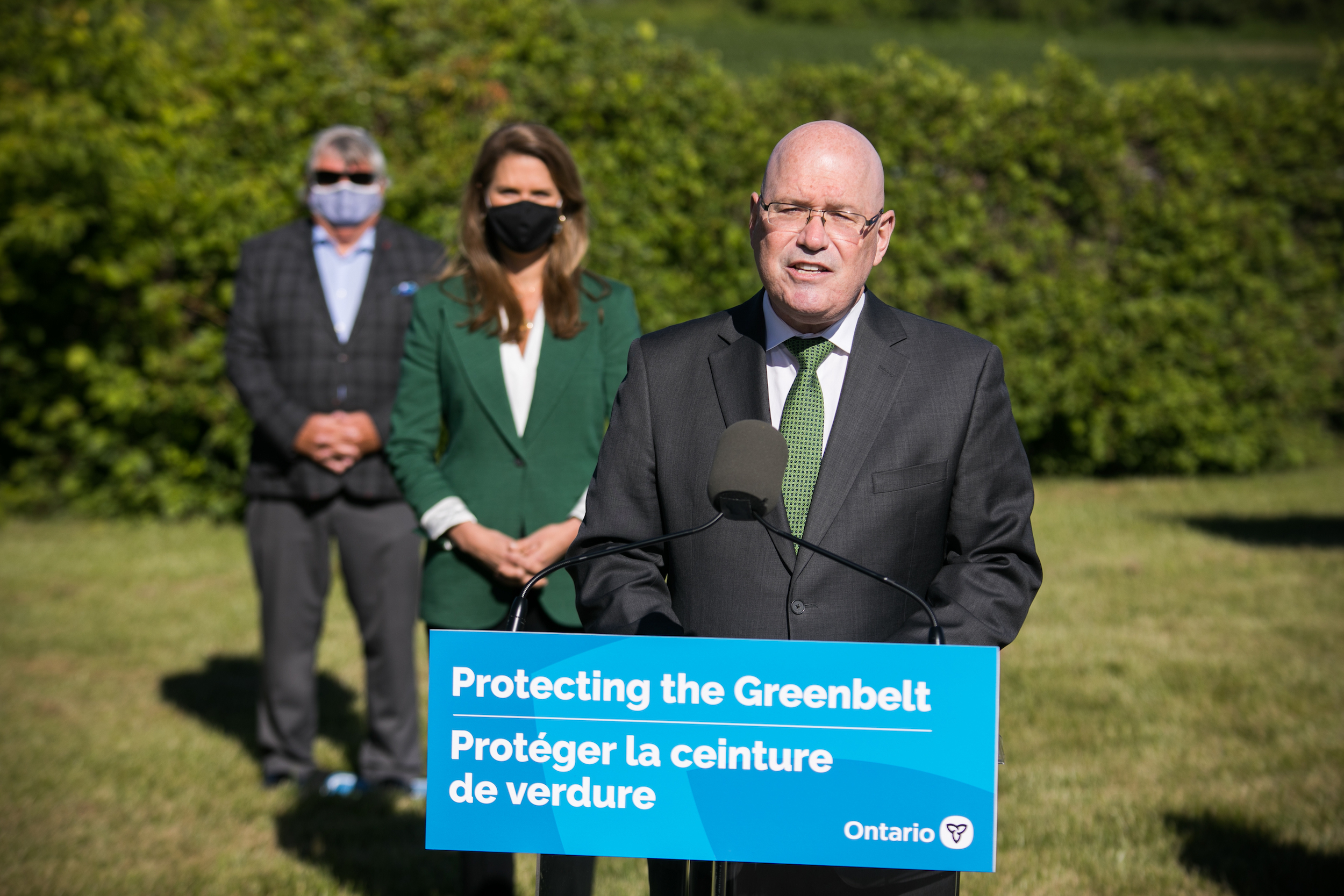
Before the high-profile resignations in December 2020, the Greenbelt Council had 13 members. Afterwards, it lost even more members and was gradually whittled down to four in 2021. Over time, the government gradually appointed more, reaching nine members in mid-2022, according to archived versions of its member list. But in the months leading up to the government’s decision to remove land from the Greenbelt, the council’s numbers began to dwindle again — five have departed since last summer.
Two members — Michael Williams of the charity Ducks Unlimited Canada and retired lawyer Michael Fowler — left after their terms expired in summer 2022. Williams did not respond to an email from The Narwhal. Fowler declined to comment on his time with the Greenbelt Council.
Others left before their terms were up. Sterling led the council when the new terms of reference were authored in March 2022, but left later that year, before the government publicly proposed cutting into the Greenbelt. Sterling didn’t answer emailed questions from The Narwhal about why he exited the job when his appointment still had more than a year left.
In roughly the same span of time, two other members also left early: Peel Regional Councillor Johanna Downey and Patrick Molloy, the former mayor of the town of Uxbridge. Downey did not answer an email and Molloy did not respond to a request sent via LinkedIn.
A sixth member, former Ontario finance minister Charles Sousa, was briefly appointed to the council in October 2022 but left after about three weeks to run for a federal seat — Sousa is now a Liberal MP. In an email, Sousa said he never sat in an official Greenbelt Council meeting so he couldn’t comment on changes to the terms of reference and media protocol, but he believes it’s possible to increase housing supply without cutting into green space.
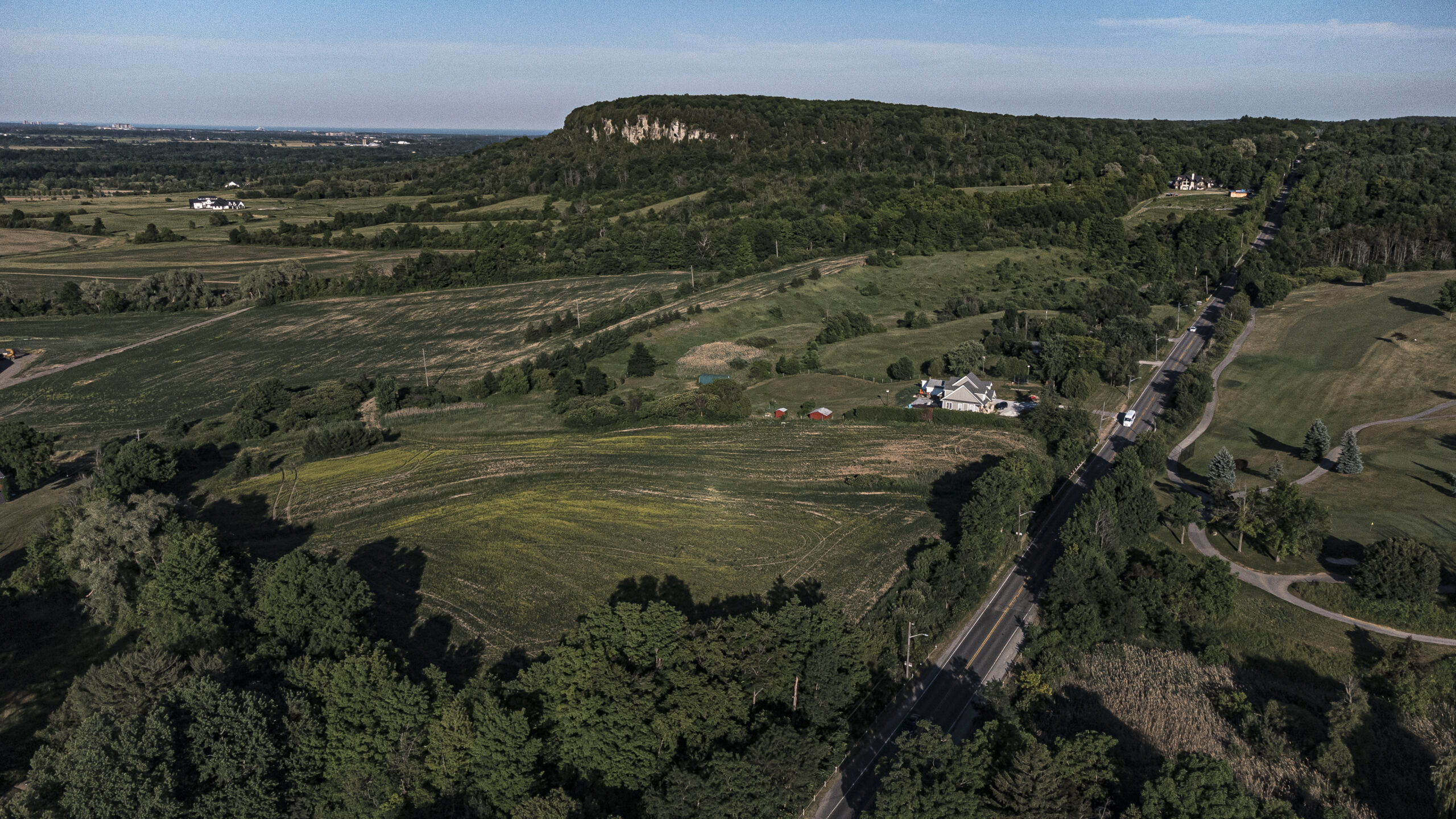
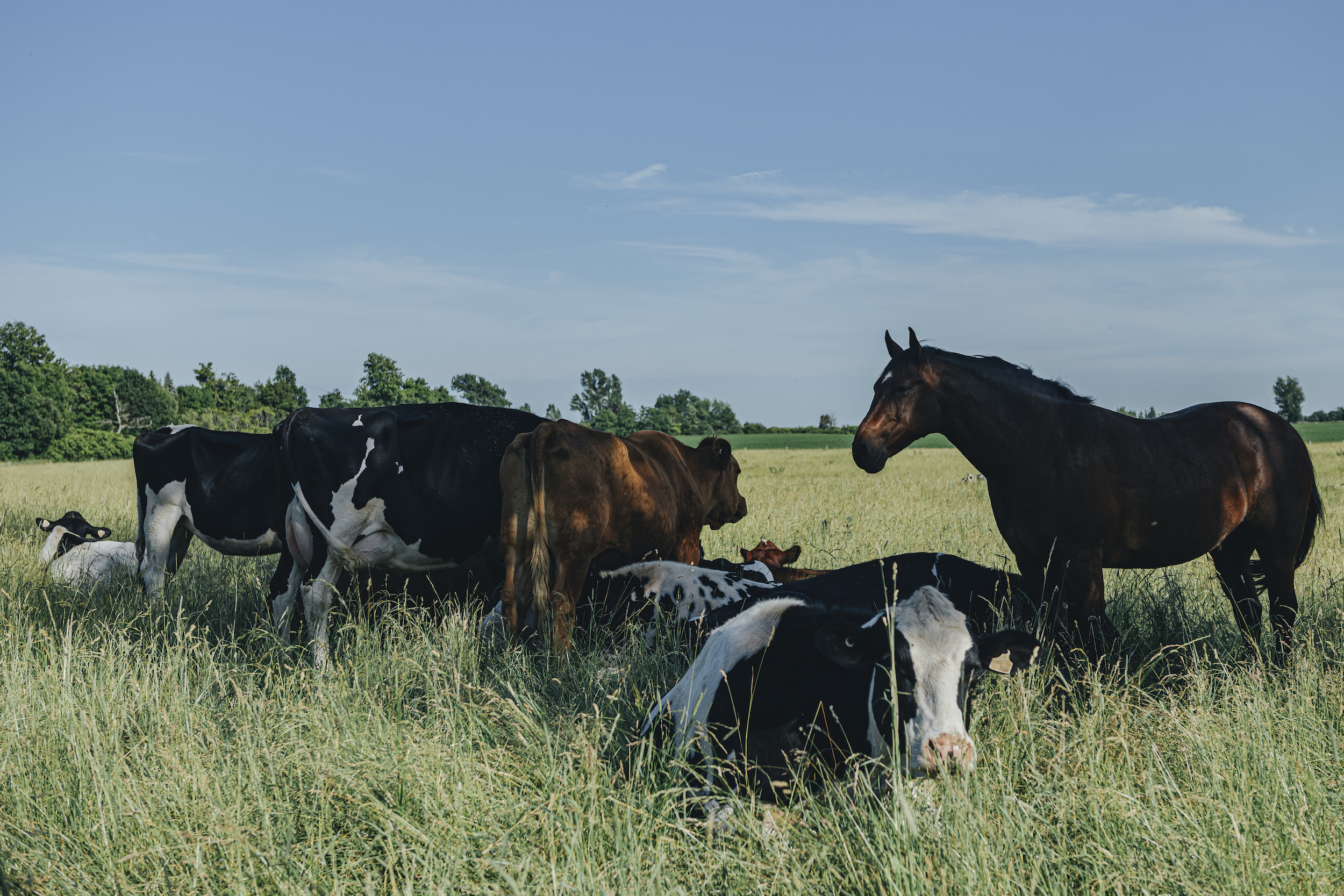
“To protect the Greenbelt we need smart growth: a proper balance between competing demands for housing, economic growth and environmental sustainability,” Sousa said. “I felt that I could make a positive impact and make appropriate recommendations in finding that right balance.”
Sousa added he had already put in his resignation when the changes to the Greenbelt were announced: “I was prepared to do my best to work with the group and ensure this tremendous area is preserved for generations to come. Unfortunately, I was not able to contribute in the way I had hoped.”
Former Mississauga mayor Hazel McCallion was appointed in October 2022 to replace Sterling, but died in January and hasn’t yet been replaced.
The Greenbelt Council now has just four members: Heather French, a co-owner and operator of a grain farm in Caledon, Ont., Toronto Metropolitan University urban planning professor David Amborski, Bradford West Gwillimbury town Councillor Jonathan Scott and environmental consultant Jo-Anne Lane.
In an email to The Narwhal, Amborski declined to answer questions but said it’s not unusual for members of government panels to be unable to speak to media about their work. Scott also declined to comment in a message sent after this story was published: “I only have firsthand experience with the protocols as they’ve existed since my appointment and per those protocols would need to refer you to the chair or ministry for further comment,” he said.
French did not respond to an email from The Narwhal. Lane did not answer a message sent via LinkedIn.
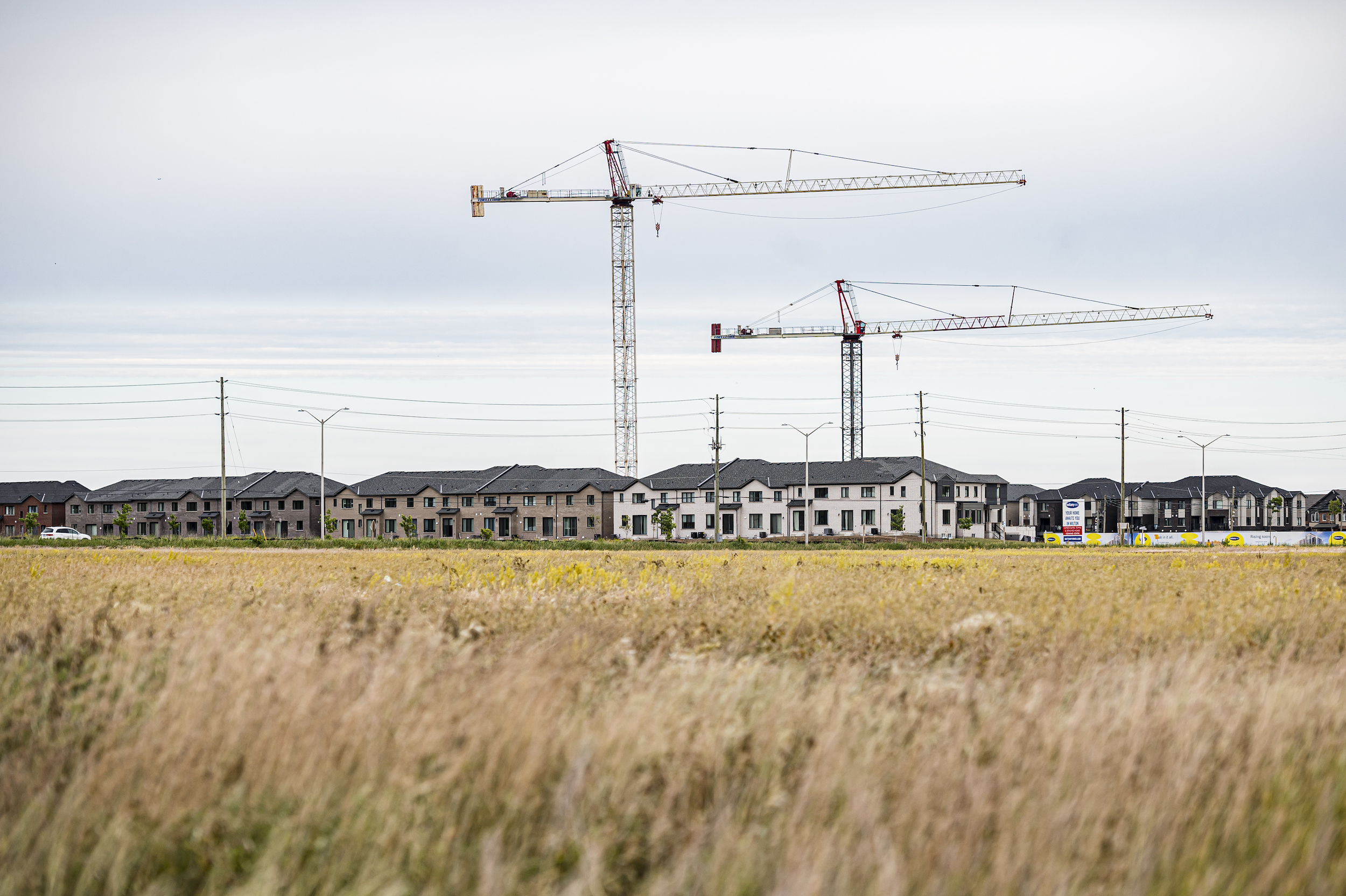
The Ministry of Municipal Affairs and Housing did not answer when asked when it plans to appoint more members to the Greenbelt Council, or whether the panel is able to function with just four members.
In the past, the Greenbelt Council’s mandate made it an advocate for the Greenbelt and for good land use planning in southern Ontario, Gray said. Without that, it appears the government has turned it into something else.
“Their ability both to choose things that come their way and do reports about them and then release them to the public keeps those issues in the public mind,” Gray said.
“Anything that silences their ability to work on issues that come their way obviously reduces their effectiveness.”
Get the inside scoop on The Narwhal’s environment and climate reporting by signing up for our free newsletter. On March 17, federal Conservative Leader Pierre Poilievre...
Continue reading
An internal document obtained by The Narwhal shows how the natural resources minister was briefed...

Notes made by regulator officers during thousands of inspections that were marked in compliance with...

Racing against time, dwindling habitat and warming waters, scientists are trying to give this little-known...
